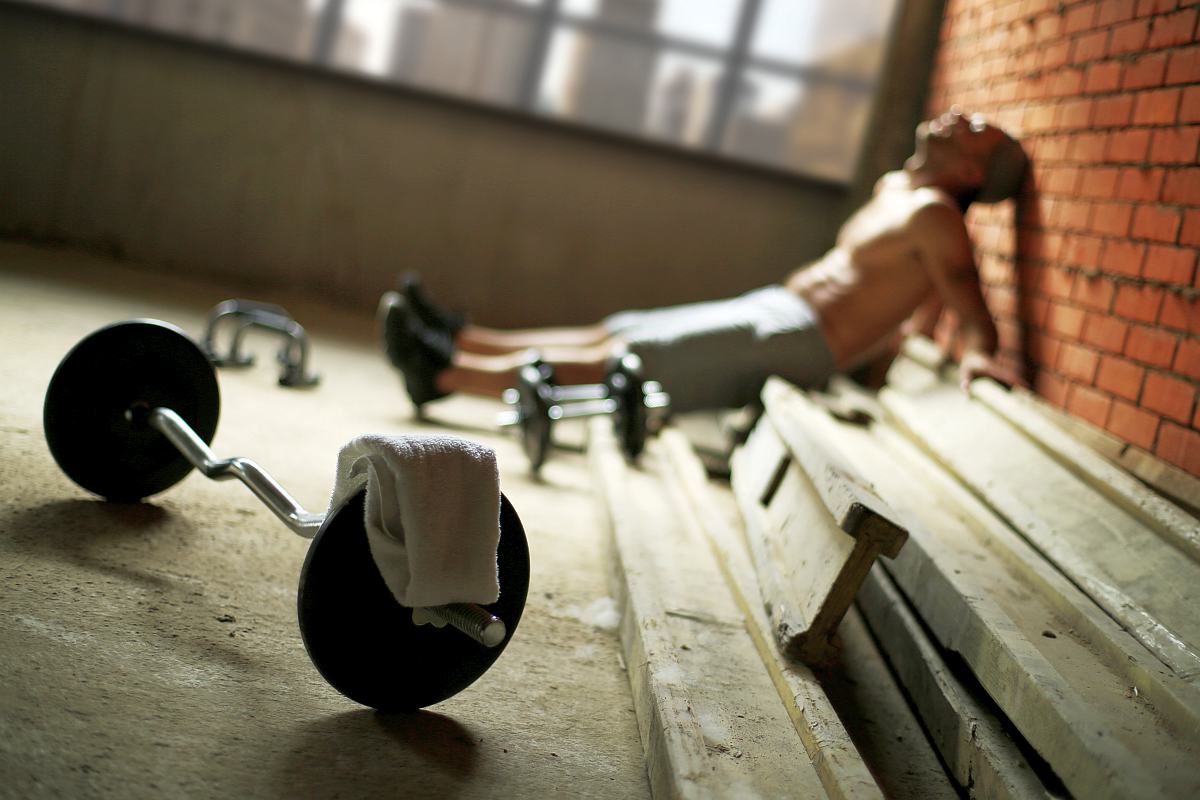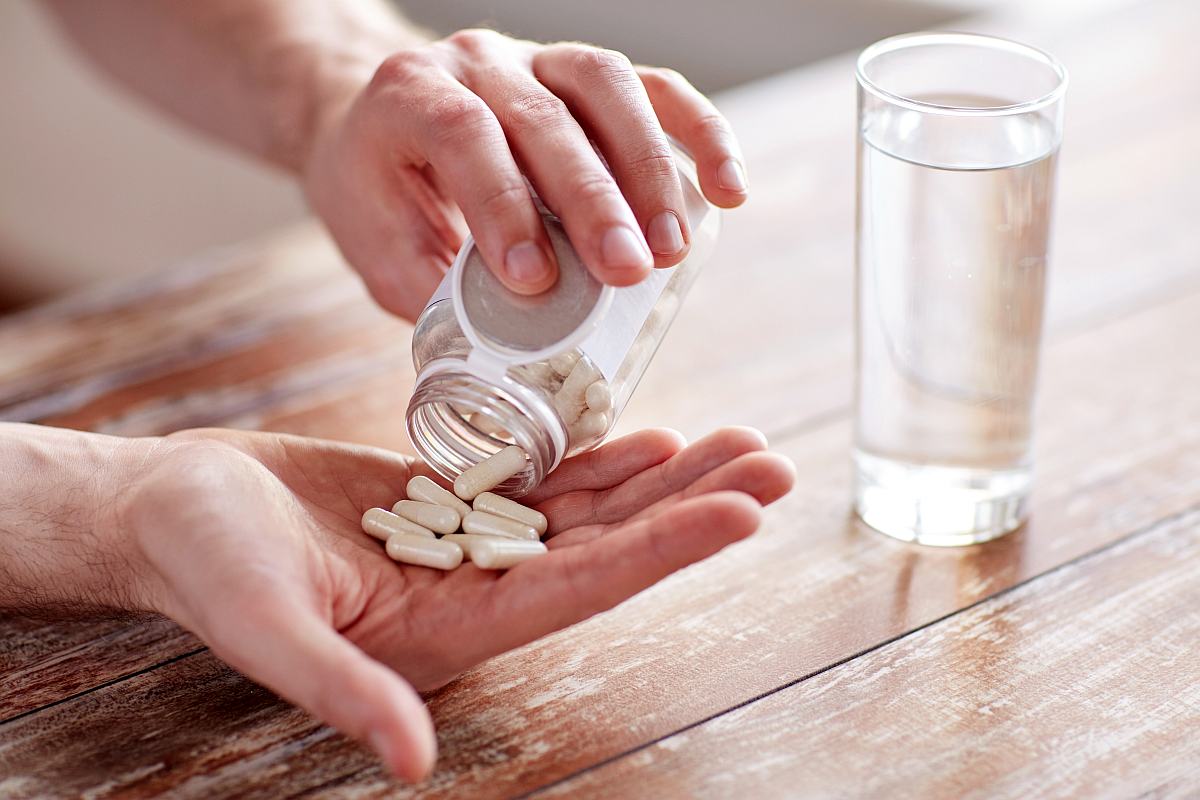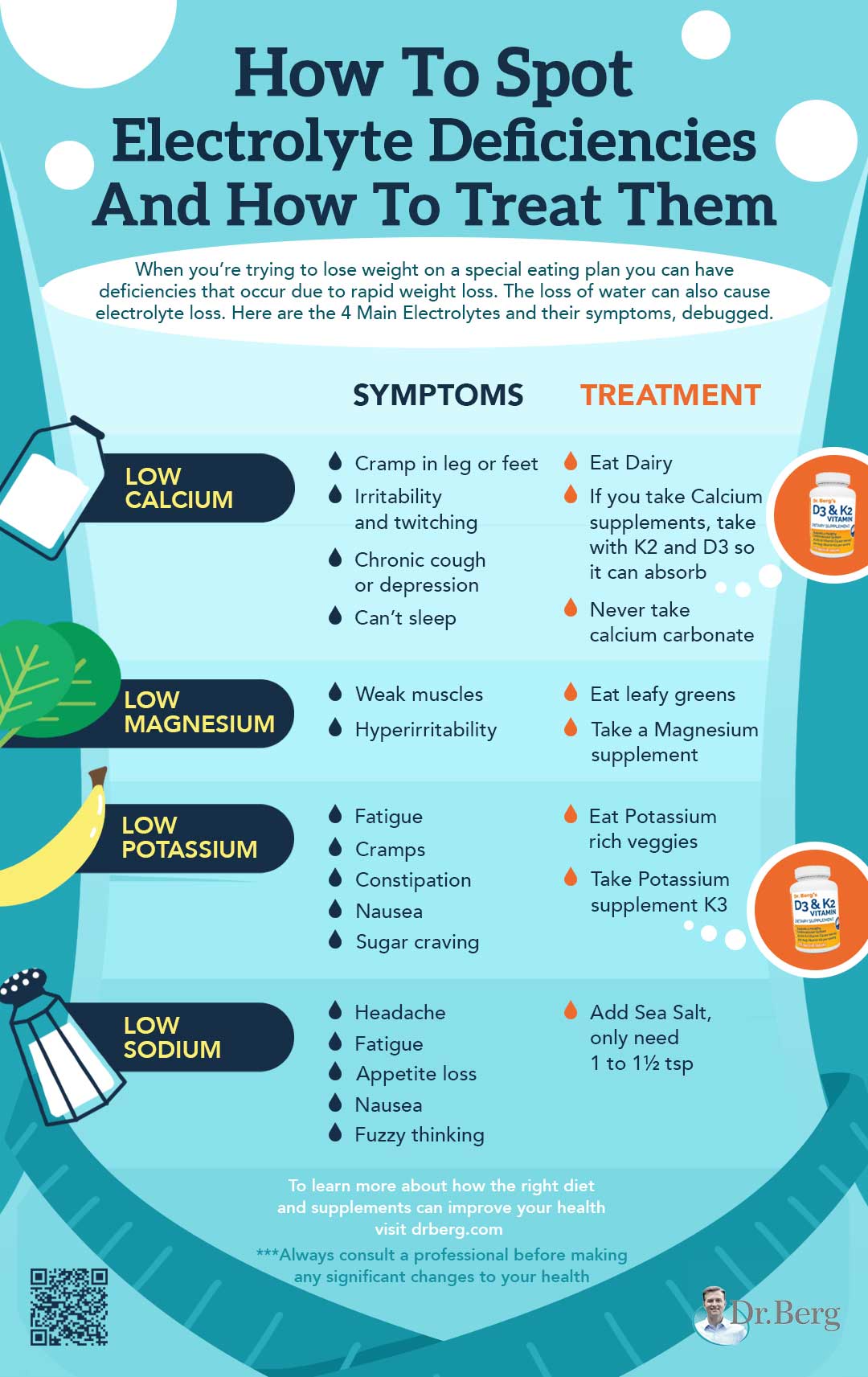The 4 Electrolytes and Their Symptoms [INFOGRAPHIC]

25 Top Supplements That Really Work
Discover the most effective supplements to promote a healthy body
Learn about key supplements to support digestion, brain function, energy, and more
Understand how to manage common health issues with specific supplements

25 Top Supplements That Really Work
Discover the most effective supplements to promote a healthy body
Learn about key supplements to support digestion, brain function, energy, and more
Understand how to manage common health issues with specific supplements

25 Top Supplements That Really Work
Discover the most effective supplements to promote a healthy body
Learn about key supplements to support digestion, brain function, energy, and more
Understand how to manage common health issues with specific supplements

25 Top Supplements That Really Work
Discover the most effective supplements to promote a healthy body
Learn about key supplements to support digestion, brain function, energy, and more
Understand how to manage common health issues with specific supplements

25 Top Supplements That Really Work
Discover the most effective supplements to promote a healthy body
Learn about key supplements to support digestion, brain function, energy, and more
Understand how to manage common health issues with specific supplements

25 Top Supplements That Really Work
Discover the most effective supplements to promote a healthy body
Learn about key supplements to support digestion, brain function, energy, and more
Understand how to manage common health issues with specific supplements

25 Top Supplements That Really Work
Discover the most effective supplements to promote a healthy body
Learn about key supplements to support digestion, brain function, energy, and more
Understand how to manage common health issues with specific supplements

25 Top Supplements That Really Work
Discover the most effective supplements to promote a healthy body
Learn about key supplements to support digestion, brain function, energy, and more
Understand how to manage common health issues with specific supplements

25 Top Supplements That Really Work
Discover the most effective supplements to promote a healthy body
Learn about key supplements to support digestion, brain function, energy, and more
Understand how to manage common health issues with specific supplements

25 Top Supplements That Really Work
Discover the most effective supplements to promote a healthy body
Learn about key supplements to support digestion, brain function, energy, and more
Understand how to manage common health issues with specific supplements

25 Top Supplements That Really Work
Discover the most effective supplements to promote a healthy body
Learn about key supplements to support digestion, brain function, energy, and more
Understand how to manage common health issues with specific supplements

25 Top Supplements That Really Work
Discover the most effective supplements to promote a healthy body
Learn about key supplements to support digestion, brain function, energy, and more
Understand how to manage common health issues with specific supplements

25 Top Supplements That Really Work
Discover the most effective supplements to promote a healthy body
Learn about key supplements to support digestion, brain function, energy, and more
Understand how to manage common health issues with specific supplements

Keto Strategy Tips
Expert advice on maintaining a successful keto lifestyle
Learn simple strategies to overcome common challenges and stay on track
Stay motivated with tips and techniques to keep you focused on your keto journey
Practical cutout wallet guide for quick reference on keto-friendly choices and strategies

Keto Strategy Tips
Expert advice on maintaining a successful keto lifestyle
Learn simple strategies to overcome common challenges and stay on track
Stay motivated with tips and techniques to keep you focused on your keto journey
Practical cutout wallet guide for quick reference on keto-friendly choices and strategies

Keto Strategy Tips
Expert advice on maintaining a successful keto lifestyle
Learn simple strategies to overcome common challenges and stay on track
Stay motivated with tips and techniques to keep you focused on your keto journey
Practical cutout wallet guide for quick reference on keto-friendly choices and strategies

Keto Strategy Tips
Expert advice on maintaining a successful keto lifestyle
Learn simple strategies to overcome common challenges and stay on track
Stay motivated with tips and techniques to keep you focused on your keto journey
Practical cutout wallet guide for quick reference on keto-friendly choices and strategies

Keto Strategy Tips
Expert advice on maintaining a successful keto lifestyle
Learn simple strategies to overcome common challenges and stay on track
Stay motivated with tips and techniques to keep you focused on your keto journey
Practical cutout wallet guide for quick reference on keto-friendly choices and strategies

Keto Strategy Tips
Expert advice on maintaining a successful keto lifestyle
Learn simple strategies to overcome common challenges and stay on track
Stay motivated with tips and techniques to keep you focused on your keto journey
Practical cutout wallet guide for quick reference on keto-friendly choices and strategies

Keto Strategy Tips
Expert advice on maintaining a successful keto lifestyle
Learn simple strategies to overcome common challenges and stay on track
Stay motivated with tips and techniques to keep you focused on your keto journey
Practical cutout wallet guide for quick reference on keto-friendly choices and strategies

Keto Strategy Tips
Expert advice on maintaining a successful keto lifestyle
Learn simple strategies to overcome common challenges and stay on track
Stay motivated with tips and techniques to keep you focused on your keto journey
Practical cutout wallet guide for quick reference on keto-friendly choices and strategies

Keto Strategy Tips
Expert advice on maintaining a successful keto lifestyle
Learn simple strategies to overcome common challenges and stay on track
Stay motivated with tips and techniques to keep you focused on your keto journey
Practical cutout wallet guide for quick reference on keto-friendly choices and strategies

Keto Strategy Tips
Expert advice on maintaining a successful keto lifestyle
Learn simple strategies to overcome common challenges and stay on track
Stay motivated with tips and techniques to keep you focused on your keto journey
Practical cutout wallet guide for quick reference on keto-friendly choices and strategies

Keto Strategy Tips
Expert advice on maintaining a successful keto lifestyle
Learn simple strategies to overcome common challenges and stay on track
Stay motivated with tips and techniques to keep you focused on your keto journey
Practical cutout wallet guide for quick reference on keto-friendly choices and strategies

Keto Strategy Tips
Expert advice on maintaining a successful keto lifestyle
Learn simple strategies to overcome common challenges and stay on track
Stay motivated with tips and techniques to keep you focused on your keto journey
Practical cutout wallet guide for quick reference on keto-friendly choices and strategies

Keto Strategy Tips
Expert advice on maintaining a successful keto lifestyle
Learn simple strategies to overcome common challenges and stay on track
Stay motivated with tips and techniques to keep you focused on your keto journey
Practical cutout wallet guide for quick reference on keto-friendly choices and strategies
Low levels of electrolytes could be causing you constant tiredness and irritability. Find out which specific mineral you’re lacking as we debug the rest of the symptoms below.
RELATED: Sleep Evaluation and Debug by Dr. Eric Berg
In this article:
Symptoms of Low Electrolytes and How to Debug Them
Click here to jump to the infographic
What Are Electrolytes?
Electrolytes are minerals involved in the many processes of the body including muscle contraction, pH regulation, and hydration. These minerals are can be found in your fluids like sweat, blood, and urine, and form as electrolytes.
The following list of electrolytes are found in the body:
Bicarbonate
Phosphate
Magnesium
Calcium
Chloride
Potassium
Sodium
For a more focused discussion, I’m going to zoom in on the four electrolytes that usually become scarce when people go on a diet: calcium, magnesium, potassium, and sodium.
Weight Loss And The Four Electrolytes

A lot of times when you're trying to lose weight on a special eating plan, you can have nutrient and mineral deficiencies. This is because some of what you’re losing is water, which means you’re losing electrolytes as well.
1. Calcium
If your calcium is low, it’s common to get muscle cramps in your calves, legs, and feet. You might also experience irritability, twitchy muscles, chronic cough, depression, and sleeping problems.
But, calcium is not the only one to blame when these symptoms occur. It could be that your body’s pH level is off, too. If the body is too alkaline, you can't absorb calcium. If your gallbladder and digestive system are not working right, you all can't pull in calcium for processing. These are some reasons why some people take calcium but don't feel any better.
2. Magnesium
Low magnesium can cause weak muscles, hyperirritability, irregular heart beat, and sleeping problems. Supplements can help resolve these symptoms. A lot of times when you take calcium, it automatically comes with magnesium, like a calcium-magnesium supplement.
Note: Make sure you never take calcium carbonate. It can be very bad for your health.
Calcium Carbonate Definition: A chemical compound typically used in antacids, supplements and treatments needing a buffer, e.g. hemodialysis. Excessive consumption can be damaging to the kidneys.
RELATED: Amazing Magnesium
3. Potassium
Low potassium can cause fatigue, mental fog, cramps in the calves or feet, constipation, nausea, and sugar cravings. You can get your potassium checked but it will most likely show normal results. Why? 98% of your potassium is inside the cells, not in the blood. You would have to deplete a lot of potassium for a blood test to reflect any deficit.
4. Sodium
Sodium is what people are afraid of in salt, but if you are low in this mineral, you will experience headaches, fatigue, appetite loss, nausea, and fuzzy thinking. It's not a bad idea to try increasing your sodium levels if you are experiencing these symptoms.
How to Increase Your Electrolytes Levels

You can take these minerals as supplements, but you can also eat more vegetables (for potassium and magnesium), sea salt (for sodium), and dairy products (for calcium). For potassium, you can eat huge amounts of salads, not bananas because they don't have enough supply of the mineral. You also need to neutralize your pH level, work on your digestion, and make your gallbladder work normally to allow better calcium absorption.
Don't forget to download, save, or share this handy infographic for reference:

These four, crucial and strong electrolytes, can be deficient when you undergo rapid weight loss. Make sure to eat foods rich in calcium, magnesium, potassium, and sodium or take supplements to compensate. Consult your doctor if the symptoms of electrolyte imbalance persist.
How do you keep your electrolytes in check? Let’s talk in the comments section below.
Up Next:
Disclaimer: Our educational content is not meant or intended for medical advice or treatment.
Previous blog
How Do I Know What Diet Is Best For MeNext blog
How to Correct a Tailbone InjuryTags

Popular
08/21/2024
55K views
02/23/2025
46.3K views
11/18/2024
277.5K views
03/18/2024
11/21/2022




